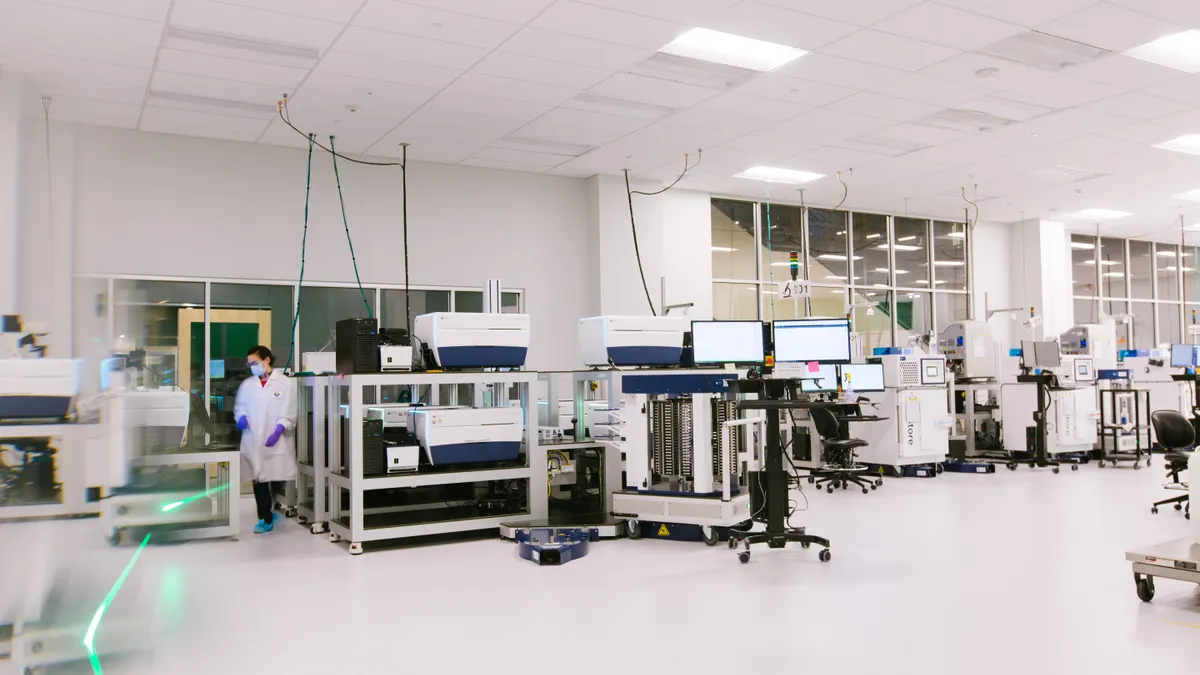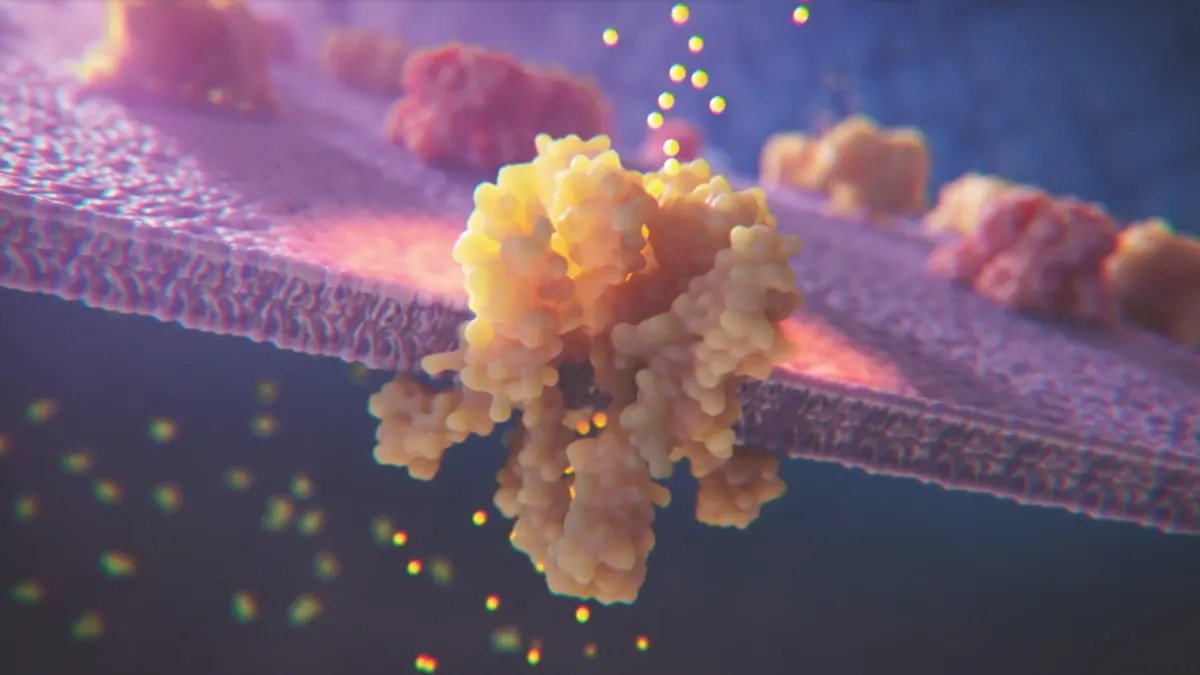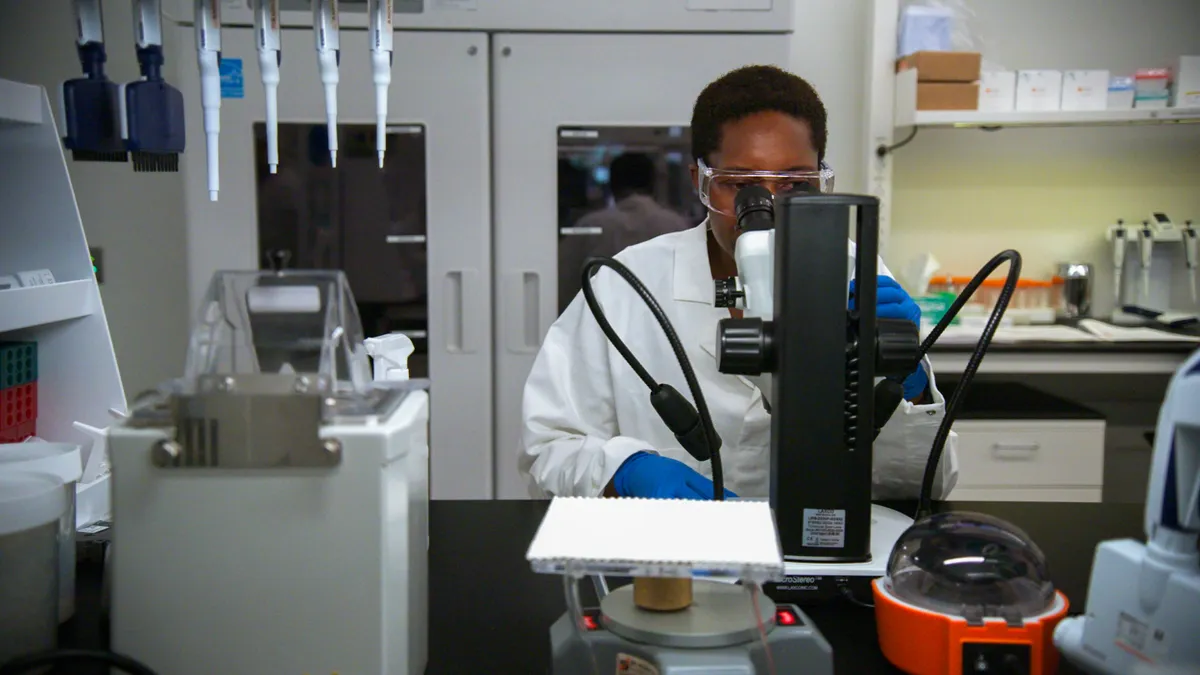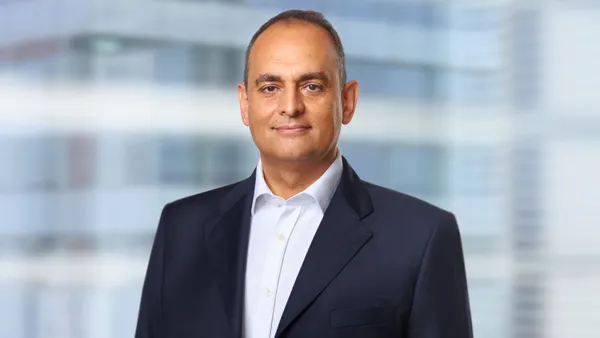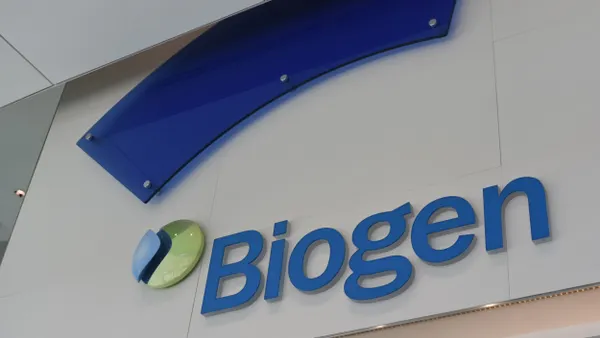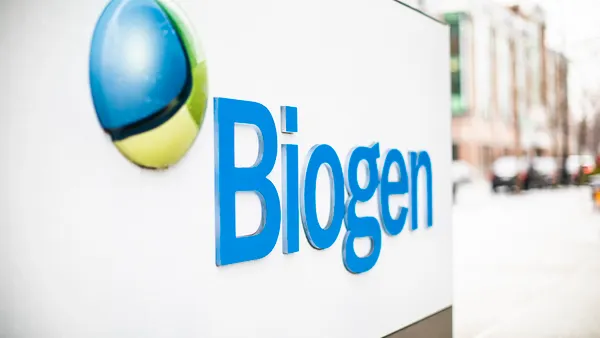Dive Brief:
- Recursion and Exscientia, two artificial intelligence firms, on Thursday announced that they would combine, betting their complementary skills in technology-based drug discovery will lead to faster and better development of medicines.
- The new entity will keep the name Recursion, and current Recursion shareholders will end up with about 74% of it. The company will be based in Salt Lake City, and trade on the Nasdaq. Recursion CEO Chris Gibson will retain the top job, while Exscientia’s interim CEO David Hallett will take the role of chief scientific officer.
- Together, the two firms had about $850 million in cash at the end of the second quarter and expect a steady stream of inflowing funds in the future. Current partnerships inked by Recursion and Exscientia may yield about $200 million in milestone payments over the next two years and have the potential to bring in billions more if successful, they said.
Dive Insight:
The use of artificial intelligence has the potential to change the way new medicines are made. Recursion and Exscientia are among a large number of publicly traded biotechnology companies and well-funded startups hoping to harness this potential and build a business around it. Exscientia goes so far as to predict that "in the future all drugs will be designed by AI."
There’s still skepticism about AI’s impact on drug discovery, especially considering the inherent risks and typical long timelines associated with clinical trials. Those doubts have been reflected by falling share prices, as Recursion, Exscientia and another AI drug discovery firm, BenevolentAI, have all seen their market value plummet since going public.
But Recursion’s Gibson says he’s confident in a turnaround. Earlier this year, he spoke of the potential for AI to help weed out drugs destined to fail earlier in the process, allowing better options to be developed more quickly and lowering prices across the industry.
“What we’re doing is eliminating some of the cost of failure and putting it earlier in the process,” Gibson told reporters at the time. With AI, scientists could work on five or 10 new programs a day, he estimated, making failure “cheap and easy.”
Recursion has been active in shoring up its technology through acquisitions. And both it and Exscientia have already used their tools to advance experimental medicines into human testing. Together, the companies expect to give investors 10 clinical readouts in the next 18 months, with most programs having the potential for peak sales of more than $1 billion, according to Recursion.
Oxford, England-based Exscientia has a pipeline in precision oncology, which will be added to Recursion’s work in oncology, rare disease and infectious disease, the companies said. Their partners in development for various programs include some of the biggest drugmakers in the world: Roche, Bayer, Sanofi and Merck KGaA.
Recursion and Exscientia expect their merger to close by early 2025. They expect the combination to yield annual savings of about $100 million, and the new company’s cash runway to extend into 2027.


